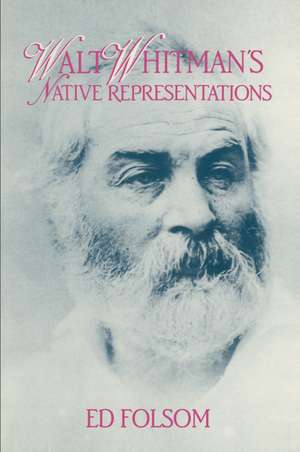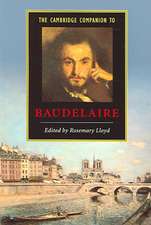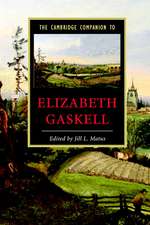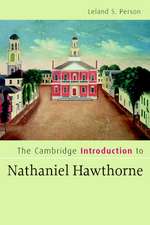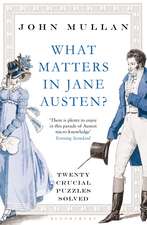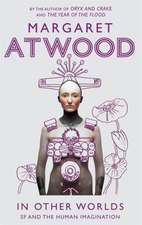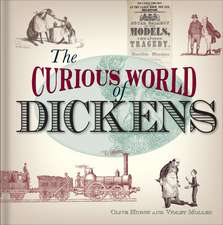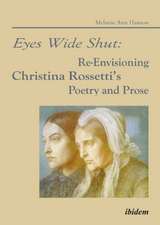Walt Whitman's Native Representations: Cambridge Studies in American Literature and Culture, cartea 80
Autor Ed Folsomen Limba Engleză Paperback – 27 mai 1997
Din seria Cambridge Studies in American Literature and Culture
-
 Preț: 231.60 lei
Preț: 231.60 lei - 8%
 Preț: 530.11 lei
Preț: 530.11 lei -
 Preț: 374.90 lei
Preț: 374.90 lei -
 Preț: 282.10 lei
Preț: 282.10 lei -
 Preț: 456.72 lei
Preț: 456.72 lei -
 Preț: 237.68 lei
Preț: 237.68 lei - 11%
 Preț: 689.93 lei
Preț: 689.93 lei - 8%
 Preț: 530.25 lei
Preț: 530.25 lei - 9%
 Preț: 592.24 lei
Preț: 592.24 lei -
 Preț: 163.91 lei
Preț: 163.91 lei - 9%
 Preț: 592.73 lei
Preț: 592.73 lei -
 Preț: 284.01 lei
Preț: 284.01 lei - 9%
 Preț: 592.24 lei
Preț: 592.24 lei -
 Preț: 284.01 lei
Preț: 284.01 lei - 14%
 Preț: 688.24 lei
Preț: 688.24 lei -
 Preț: 328.46 lei
Preț: 328.46 lei - 9%
 Preț: 594.37 lei
Preț: 594.37 lei -
 Preț: 305.12 lei
Preț: 305.12 lei -
 Preț: 389.55 lei
Preț: 389.55 lei -
 Preț: 343.63 lei
Preț: 343.63 lei -
 Preț: 346.90 lei
Preț: 346.90 lei -
 Preț: 286.69 lei
Preț: 286.69 lei -
 Preț: 283.79 lei
Preț: 283.79 lei -
 Preț: 288.04 lei
Preț: 288.04 lei - 14%
 Preț: 684.76 lei
Preț: 684.76 lei -
 Preț: 287.87 lei
Preț: 287.87 lei -
 Preț: 313.25 lei
Preț: 313.25 lei -
 Preț: 348.47 lei
Preț: 348.47 lei -
 Preț: 306.10 lei
Preț: 306.10 lei -
 Preț: 352.50 lei
Preț: 352.50 lei -
 Preț: 281.12 lei
Preț: 281.12 lei -
 Preț: 281.49 lei
Preț: 281.49 lei -
 Preț: 303.21 lei
Preț: 303.21 lei -
 Preț: 317.49 lei
Preț: 317.49 lei - 11%
 Preț: 694.23 lei
Preț: 694.23 lei
Preț: 283.63 lei
Nou
Puncte Express: 425
Preț estimativ în valută:
54.27€ • 58.04$ • 45.25£
54.27€ • 58.04$ • 45.25£
Carte tipărită la comandă
Livrare economică 17 aprilie-01 mai
Preluare comenzi: 021 569.72.76
Specificații
ISBN-13: 9780521585729
ISBN-10: 0521585724
Pagini: 218
Ilustrații: 14 b/w illus.
Dimensiuni: 152 x 229 x 13 mm
Greutate: 0.35 kg
Ediția:Revised
Editura: Cambridge University Press
Colecția Cambridge University Press
Seria Cambridge Studies in American Literature and Culture
Locul publicării:New York, United States
ISBN-10: 0521585724
Pagini: 218
Ilustrații: 14 b/w illus.
Dimensiuni: 152 x 229 x 13 mm
Greutate: 0.35 kg
Ediția:Revised
Editura: Cambridge University Press
Colecția Cambridge University Press
Seria Cambridge Studies in American Literature and Culture
Locul publicării:New York, United States
Cuprins
Preface: Walt Whitman and …; Acknowledgements; Introduction: 'Wording the future'; 1. Whitman and dictionaries; 2. Whitman and baseball; 3. Whitman and American Indians; 4. Whitman and photography; 5. Whitman and photographs of the self.
Recenzii
"Ed Folsom has written a fine book that adds significantly to our knowledge of Walt Whitman's relationship to his times. Folsom provides interesting discussions of dictionaries, baseball, American Indians, and photography as they touch on the poet who repeatedly called for a historical understanding of his works....For Whitman scholars, Folsom's book is a must. And its influence should extend beyond Whitman circles. Anyone interested in the contextual study of literature will find a good example to follow in Walt Whitman's Native Representations." David S. Reynolds, The New England Quarterly
"Folsom is able to demonstrate more effectively than perhaps any previous critic how deep Whitman's investment in American culture actually was and how, instead of applying some established poetic technology to the cultural ore of his times, Whitman drew upon a diverse set of activities and energies from every corner of American life to transform the practices and principles of poetic art....The story is all the better because of Folsom's prose style (always engaging and readable and often eloquent) and his critical technique, which gently probes the theoretical issues surrounding the concept of cultural representation while offering frequent illuminations of the specific language and images in Whitman's writings. With scholarly care and critical energy, Folsom transforms what might have seemed four marginal topics into four crucial issues with subtle interconnections." M. Jimmie Killingsworth, Walt Whitman Quarterly Review
"Ultimately a book about language, Native Representations is impressive scholarship, one of the best studies ever published on Whitman. If any reader, academic or nonacademic, has been wondering if there exists a thoroughly accessible, richly informative, and profoundly stimulating book on the poet regarded by many as America's greatest--well, here it is." Choice
"...a linked series of beautifully written and meticulously researched essays....studded with arresting examples of how the forms and the textures of Whitman's culture were textualized in his writings....Walt Whitman's Native Representations is valuable for the scrupulous way in which it searches out and documents Whitman's engagement with several of the most important issues and developments of his period." M. Wynn Thomas, American Literature
"Folsom is original not in claiming primacy for his sources (which as a good historian he does not) but in arguing for their metonymical value...this book is an excellent example of a study of material culture and literature because it never asks too much of its evidence or becomes fashionably neo-Marxist in its criticism of the system the 'Poet of Democracy' celebrated...Folsom has been both scholarly and imaginative in showing how the material gets into the culture, or the cultural experience into the poetry. For this reason alone, not to mention the way the study provides an enlivening perspective for future anaylses of Leaves of Grass, Walt Whitman's Native Representation is one of the best studies of Whitman since the era of the New Criticism..." Jerome Loving, Resources for American Literary Study
"I thought that nothing new remained to be disclosed about the life and work of the poet until there burst upon the horizon Ed Folsom's insightful study....Folsom's volume Walt Whitman's Native Representations is destined to take its place alongside the classic studies of Gay Willson Allen and Roger Asselineau." Robert Strassburg, The Walt Whitman Circle
"This lucid and engaging study examines how four nineteenth-century cultural events -- the development of American dictionaries, the growth of baseball, the evolution of American Indian policy, and the development of photography -- helped shape Walt Whitman's democratic poetics....Folsom demonstrates with equally suggestive detail the effect of other cultural activities on Whitman's democratic poetics and outlook....Such insights consistently reward the reader with a rich sense of how Whitman, as Folsom says, composts the materials of a changing and conflicted democratic culture to compose the stuff of his poetry." Martin Klammer, American Studies
"..an entertaining and well-researched critical commentary on Whitman..." Review
"Folsom is able to demonstrate more effectively than perhaps any previous critic how deep Whitman's investment in American culture actually was and how, instead of applying some established poetic technology to the cultural ore of his times, Whitman drew upon a diverse set of activities and energies from every corner of American life to transform the practices and principles of poetic art....The story is all the better because of Folsom's prose style (always engaging and readable and often eloquent) and his critical technique, which gently probes the theoretical issues surrounding the concept of cultural representation while offering frequent illuminations of the specific language and images in Whitman's writings. With scholarly care and critical energy, Folsom transforms what might have seemed four marginal topics into four crucial issues with subtle interconnections." M. Jimmie Killingsworth, Walt Whitman Quarterly Review
"Ultimately a book about language, Native Representations is impressive scholarship, one of the best studies ever published on Whitman. If any reader, academic or nonacademic, has been wondering if there exists a thoroughly accessible, richly informative, and profoundly stimulating book on the poet regarded by many as America's greatest--well, here it is." Choice
"...a linked series of beautifully written and meticulously researched essays....studded with arresting examples of how the forms and the textures of Whitman's culture were textualized in his writings....Walt Whitman's Native Representations is valuable for the scrupulous way in which it searches out and documents Whitman's engagement with several of the most important issues and developments of his period." M. Wynn Thomas, American Literature
"Folsom is original not in claiming primacy for his sources (which as a good historian he does not) but in arguing for their metonymical value...this book is an excellent example of a study of material culture and literature because it never asks too much of its evidence or becomes fashionably neo-Marxist in its criticism of the system the 'Poet of Democracy' celebrated...Folsom has been both scholarly and imaginative in showing how the material gets into the culture, or the cultural experience into the poetry. For this reason alone, not to mention the way the study provides an enlivening perspective for future anaylses of Leaves of Grass, Walt Whitman's Native Representation is one of the best studies of Whitman since the era of the New Criticism..." Jerome Loving, Resources for American Literary Study
"I thought that nothing new remained to be disclosed about the life and work of the poet until there burst upon the horizon Ed Folsom's insightful study....Folsom's volume Walt Whitman's Native Representations is destined to take its place alongside the classic studies of Gay Willson Allen and Roger Asselineau." Robert Strassburg, The Walt Whitman Circle
"This lucid and engaging study examines how four nineteenth-century cultural events -- the development of American dictionaries, the growth of baseball, the evolution of American Indian policy, and the development of photography -- helped shape Walt Whitman's democratic poetics....Folsom demonstrates with equally suggestive detail the effect of other cultural activities on Whitman's democratic poetics and outlook....Such insights consistently reward the reader with a rich sense of how Whitman, as Folsom says, composts the materials of a changing and conflicted democratic culture to compose the stuff of his poetry." Martin Klammer, American Studies
"..an entertaining and well-researched critical commentary on Whitman..." Review
Descriere
This 1994 book investigates how the development of phenomena such as American dictionaries, baseball, American Indian policy and photography shaped Whitman's democratic poetics.
